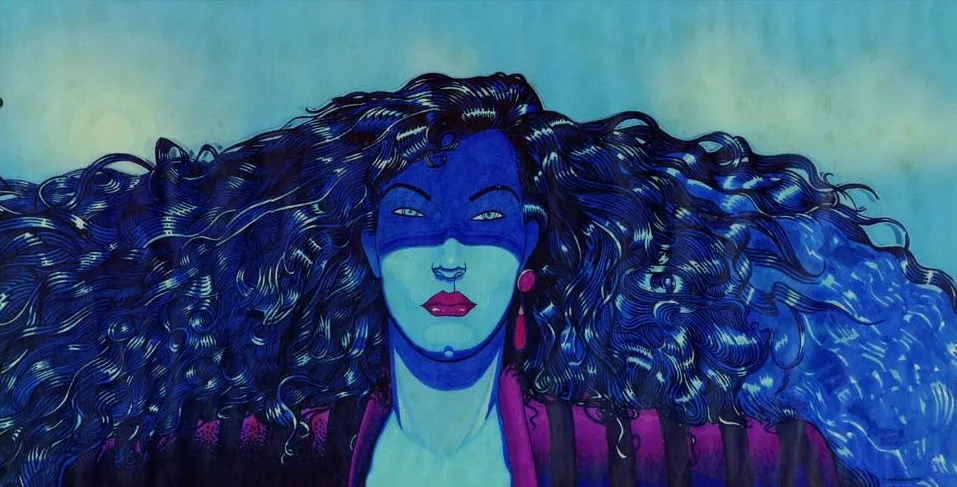cctm collettivo culturale tuttomondo Andrea Pazienza e Federico Fellini

immagine: il disegno originale realizzato da Andrea Pazienza per il film di Federico Fellini La città delle donne.
Andrea Pazienza nasce a San Benedetto Del Tronto, in provincia di Ascoli Piceno, il 23 maggio del 1956.
Il padre Enrico Pazienza insegna Educazione artistica e la madre Giuliana Di Cretico Educazione tecnica. La famiglia vive a San Severo, in provincia di Foggia, dove Andrea scopre il disegno e sperimenta il suo talento. «Il mio primo disegnino riconoscibile l’ho fatto a 18 mesi – dice su Corto Maltese di novembre del 1983…
_
Andrea Pazienza (San Benedetto del Tronto, 23 May 1956 – Montepulciano, 16 June 1988) was an Italian cartoonist, draftsman, illustrator and painter.
Pazienza is considered one of the most representative and innovative Italian comic artists.
In 1974 he enrolled in the degree course at DAMS, University of Bologna. He later dropped out of school two exams before graduation. He lived through the years of the protests linked to the 1977 Movement, which is the background to the comic Le Straordinarie Avventure di Pentothal (The extraordinary adventures of Pentothal), the first published work by Pazienza (Alter Alter, 1977).
In 1977, Pazienza joined the magazine Cannibale, an experimental comic magazine for adults of a humorous and satirical genre founded by Stefano Tamburini and Massimo Mattioli, to whom Tanino Liberatore would later join. From 1979 to 1981, he collaborated with the satire weekly Il Male. With the Cannibal group and Vincenzo Sparagna, in 1980 he founded the monthly Frigidaire, on whose pages Zanardi appeared. Zanardi is an imaginary comic book character created by Andrea Pazienza and protagonist of a series of comic stories made in the eighties.
In the early 1980s, Pazienza made some film posters, including Federico Fellini‘s City of Women in 1980. In these years, Pazienza became a heroin addict. In this period, Pazienza collaborated with Corto Maltese, Linus, Tango (supplement of the newspaper L’Unità), Comic Art and Zut, and other magazines. In 1984 he moved to Montepulciano, apparently detoxified. In Montepulciano, he created his works inspired by a passion for poetry and history: Pompeo, Campofame based on a poem by Robinson Jeffers and Astarte.
On June 16, 1988, he died suddenly in Montepulciano, perhaps following a heroin overdose.
_
cctm collettivo culturale tuttomondo Andrea Pazienza e Federico Fellini